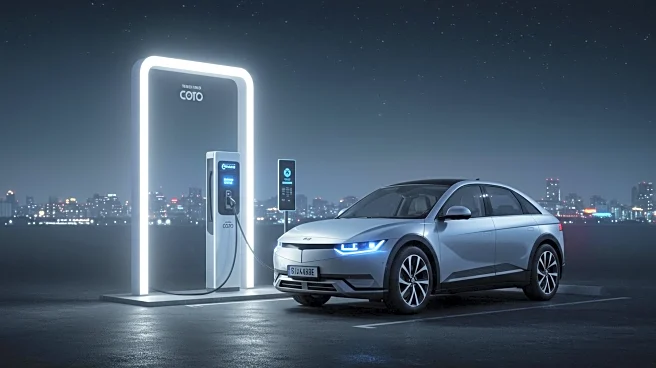What is the story about?
What's Happening?
Tesla has significantly reduced the leasing costs of its electric vehicles in the UK, aiming to counteract declining sales and increased competition from Chinese electric vehicle manufacturers. The monthly leasing price for a Tesla Model 3 has dropped to just over half of what it was a year ago, with payments starting at £252 plus VAT. Similarly, the Model Y is available for under £400 per month, compared to last summer's rates of £600–£700. Industry insiders report that Tesla has implemented discounts of up to 40% to leasing companies to remain competitive and manage limited storage capacity for unsold stock in the UK. Despite unchanged retail prices, Tesla has introduced zero-interest finance deals, which analysts estimate will cost the company approximately £6,000 over three years for a £40,000 car. Tesla's UK registrations fell by 60% in July year-on-year, while Chinese competitor BYD increased its market share to 2.3% of new UK registrations.
Why It's Important?
The reduction in leasing costs is a strategic move by Tesla to maintain its market presence amid growing competition from Chinese EV manufacturers, who are offering aggressively priced vehicles. This development is significant for the UK automotive market, as it reflects the shifting dynamics in consumer preferences towards more affordable electric vehicles. Tesla's decision to lower leasing costs could influence other manufacturers to adopt similar strategies, potentially leading to broader changes in pricing structures within the industry. The move also highlights the challenges Tesla faces in balancing demand with brand value, as deep discounts may impact resale values and investor confidence. The outcome of this strategy will be crucial for Tesla's long-term competitiveness in the European market.
What's Next?
Tesla's approach to reducing leasing costs may prompt other automakers to reassess their pricing strategies, especially as interest rates stabilize and the UK government considers new incentives to support EV adoption. The next year will be critical for Tesla as it navigates the competitive landscape and seeks to maintain its market share against the influx of Chinese imports. The company's ability to sustain demand while protecting its brand value will be closely watched by industry analysts and investors.















